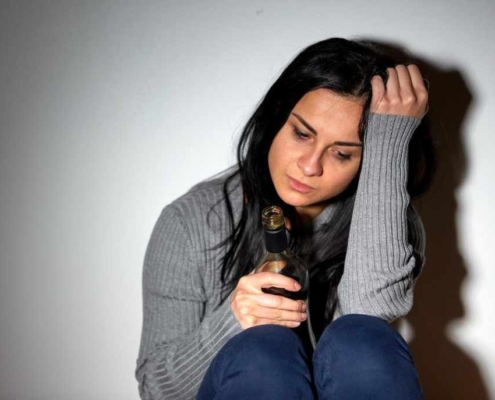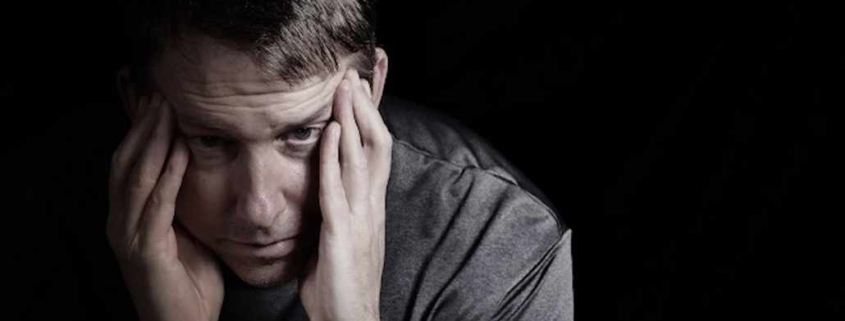Panic Attacks and Extreme Anxiety After Quitting Drinking Alcohol
Table of Contents
Anxiety After Quitting Drinking
When you entered recovery, you may not have been prepared for some of the discomforts that can occur in sobriety. One of these is anxiety, and it can catch you off guard. If you are asking, “Why do I get extreme anxiety after quitting alcohol,” you are not alone. Read on to get a better understanding of this occurrence.
What to Expect in Alcohol Detox and Withdrawal
First, let’s look at what happens in the brain and body when you are going through detox. The symptoms associated with alcohol detox arise as the brain responds to the absence of alcohol. This happens because the brain and central nervous system have become used to the daily presence of alcohol.
Abrupt cessation of alcohol intake leads to heightened eagerness, triggering withdrawal symptoms. These signs indicate the body’s efforts to reset itself or regain a state of balance. Reaching that stage involves the body purging toxins and becoming stabilized, a process that typically spans a week.
A typical alcohol detox has three distinct stages. The initial phase occurs within the first day or two and encompasses symptoms such as sweating, irritable, headaches, nausea, and vomiting.
The second stage is when symptoms are at their peak discomfort. Withdrawal Symptoms include insomnia, tremors or shaking, confusion, agitation, elevated heart rate, increased blood pressure, and seizures. During this stage, there is a possibility of experiencing a serious and volatile event known as delirium tremens.
In the concluding phase of detox, you observe a reduction in the symptoms. However, it is common for post-acute withdrawal syndrome (PAWS) to cause some lingering symptoms. One of these symptoms is anxiety.

What is PAWS?
Post-Acute Withdrawal Syndrome (PAWS) is a cluster of symptoms, both physical and psychological, that persist after the detox has been completed. Those with a prolonged history of alcoholism are more prone to experiencing PAWS (Post-Acute Withdrawal Syndrome). This occurs because chronic excessive drinking has significantly affected many of their body systems. What results is a prolonged period of certain withdrawal symptoms.
PAWS should be closely watched, as it can threaten recovery. If the symptoms, such as extreme anxiety, become too unbearable it can cause a relapse. Returning to drinking is the only way they know to find relief from the PAWS symptoms. This is one of the reasons why a longer stay in rehab is wise, to have support during PAWS.
Reasons Why You Get Severe Anxiety After Quitting Alcohol
To better understand why you get severe anxiety after you quit drinking, it helps to know the causes of PAWS. Not all will experience PAWS anxiety, but for those who do, here are some of the things that trigger it:
- Changes in brain chemistry. Alcohol dependency and addiction cause significant changes to occur in the brain anatomy and brain chemistry. The flood of dopamine following alcohol use causes the brain to stop making its own supply of dopamine and endorphins.
- Stress response. Both the central nervous system and the peripheral nervous system are impacted by alcohol use disorder. The activation of the sympathetic nervous system intensifies, prompting t the fight or flight response. PAWS sometimes triggers a chronic stress response, making it hard in early recovery to manage even normal amounts of stress.
- Loss of coping tool. Getting sober means you no longer have access to the coping tool—alcohol—that had been used to manage anxiety. For some people, the use of alcohol to cope with stress and anxiety is the reason they develop alcoholism. Once sober, the pre-existing anxiety can reemerge.
How to Manage Anxiety in Early Recovery
Many of the tools that can be highly effective in reducing anxiety in recovery were introduced in treatment. These can be accessed in an outpatient program as part of a continuing care strategy:
- CBT. When alcohol is used as a means of self-medicating anxiety, CBT can help identify unhealthy thoughts and behavior patterns. The CBT therapist helps you control anxiety by shifting these thought distortions toward positive affirming thoughts.
- Group therapy. Lots of people in recovery experience anxiety. Sharing your personal struggles with others who can relate, helps build confidence. A skilled therapist will guide the group with exercises to practice that help manage the anxiety or stress response.
- Daily exercise. One of the most effective ways to manage anxiety in recovery is to make physical activity part of your routine. Exercise is a natural stress reducer. This is a result of the chemicals produced during physical exertion.
- Holistic therapies. Holistic methods play a central role in managing anxiety. These are activities that cause the body and mind to relax and calm down. These include deep breathing techniques, yoga, meditation, journaling, and massage.
The Importance of Continuing Care in Recovery
Continuing care is essential in early recovery, whether you suffer from extreme anxiety or not. These are the actions you take to help buttress your sobriety, even when dealing with stress or anxiety. They include:
- Building a strong support network. Occurrences that might pose a threat to your recovery. To help weather these, it is crucial to have a strong support base. Ask someone to be your sponsor, attend 12-step meetings often, and have a trusted friend you can talk to.
- Sober living. Not everyone is headed home to a safe, supportive environment. Sober living provides an alcohol-free living space that is also shared with others who are committed to sobriety.
- Outpatient therapy. If you are struggling with PAWS anxiety or pre-existing anxiety, a therapist can be helpful. A weekly session gives you a supportive place to discuss your anxiety, and also learn techniques to manage it.
Annandale Behavioral Health Treatment for Alcohol Use Disorder
Annandale Behavioral Health is a residential treatment program that treats alcohol use disorder and co-occurring anxiety disorder. If you are asking, “Why do I get extreme anxiety after quitting alcohol?” we can help you. Please reach out to our team at (855) 778-8668.






